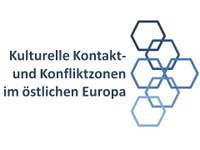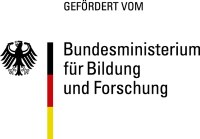"Multiculturalism: Concepts, Scenarios, Politics"
The Giessen Center for Eastern European Studies (GiZo) organized together with the Herder Institute for Historical Research on East Central Europe – Institute of the Leibniz Association a summer school in Marburg for doctoral students from the fields of linguistics, literature, history, political, social and cultural sciences.
This year's International Summer School was held between the 9th and 23rd of May as a joint program by the Giessen Center for Eastern European Studies (GiZo) and the Herder Institute Marburg as part of the Thematic DAAD network program.
Doctoral students of linguistics, literature, history, political, social and cultural sciences from the partner universities of the JLU Giessen were invited to this event. The guests came from Almaty, Cluj-Napoca, Kazan, Minsk and Lodz. Thanks to the support of the Federal Ministry of Education and Research participants of Kyiv (Kiev) have been invited to the summer school for the first time.
The program of the summer school was constructed in the way, that the 25 international and domestic junior scientists were given the opportunity to present their research projects and get feedback from other colleagues. Among other things a varied bilingual format of the event and an active commitment on the part of the participants were important for the successful cooperation.
The focal points of the researchers were multicultural diversity and its linguistic, historical and social forms. In addition cultural conflicts from an academic point of view were considered versatile. Particularly strong attention was paid to the issue of multiculturalism in Ukraine and multilingualism in Belorussian and Kazakh TV and in mass media. The internationality of the summer school gave the participants a wide range of information about regions like Silesia, the Republic of Tatarstan and Transylvania. Furthermore, historical myths, modern memory and identity politics were discussed, as well as their role in conflict resolution.
Apart from the above mentioned scientific events a broad cultural program was offered to the guests. They visited the Herder Institute for historical research on East Central Europe in Marburg and the Upper Hessian Museum in Giessen. In addition, historical guided tours were organized in Wetzlar and Braunfels. The participants of the Summer School were spending their free time in the libraries of the JLU and the Herder Institute. Moreover, they were traveling through the region of the middle of Hessen that was described, according to data from our evaluation of the guests, as a "friendly multicultural space with open and interesting people".
The results of the evaluation also revealed a high level of satisfaction regarding the organization and program of the summer school. According to the responses of the participants of the summer school their stay was very successful: They got constructive informative suggestions for their work and research projects, received new information about their research interests and participated in a useful exchange of views. Guests turned their thanks to the organizers - the GiZo and the Herder Institute - for the good support, the preparation and implementation of the summer school, as well as for the bilingualism of the events and for a lot of positive impressions.
We are convinced that the summer school "Multiculturalism in Eastern Europe: Concepts, Scenarios, Politics" expanded the cooperation between the GiZo and our partner universities. We believe that our University got an even better scientific reputation among international researchers through this summer school.
http://geb.uni-giessen.de/geb/volltexte/2015/11559/pdf/uniforum_2015_03.pdf
 |  |
|
|---|---|---|
 |
 |


